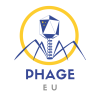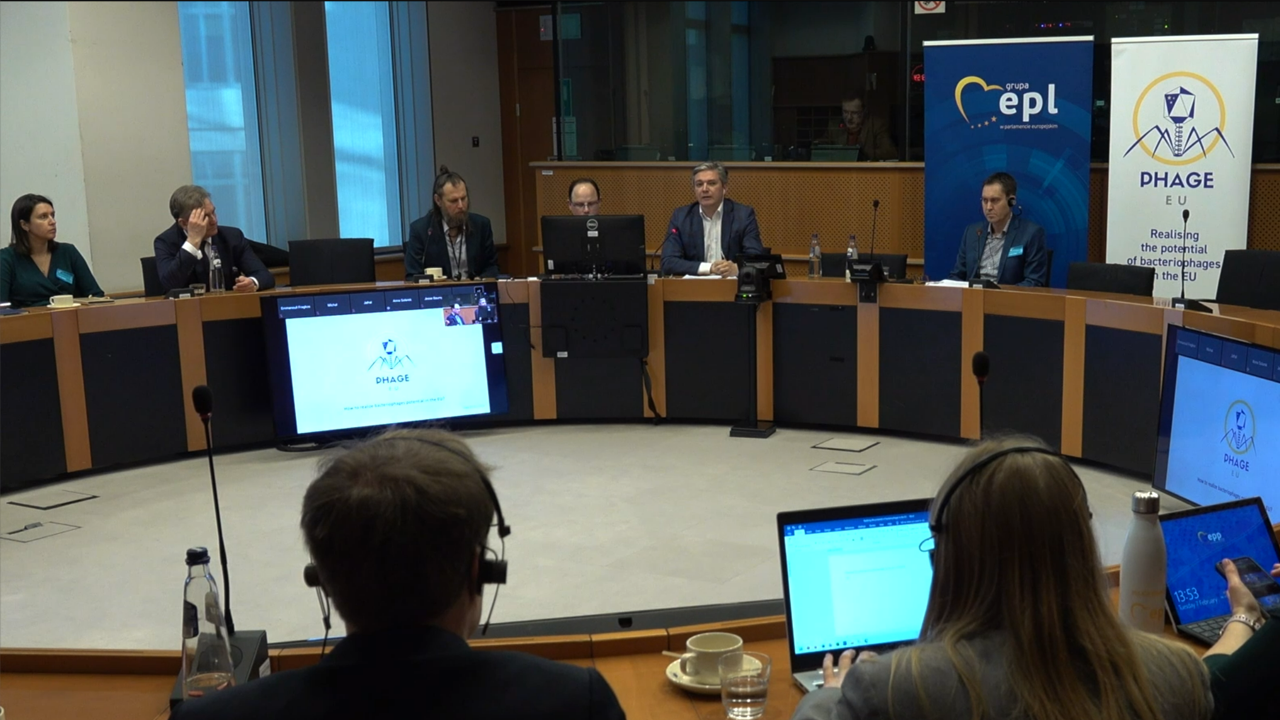A scientific conference organised by Polish MEP Adam Jarubas (EPP) and Greek MEP Emmanouil Fragkos (ECR) together with the PhageEU coalition, which brings together stakeholders representing phages in industry and science, was held at the European Parliament in Brussels on February 7, 2023.
Speaking in the panel discussion were representatives of the European Commission: L. Vivas-Alegre, (Head of Sector Research and Innovation Coordination, Directorate General for Agriculture and Rural Development) and A. Perez (Team Leader, AMR, Directorate General for Health and Food Safety), D. Goszczynski (Director General of the National Poultry Council – Chamber of Commerce), prof. J. Dastych (CEO of Proteon Pharmaceuticals) and Prof. D. Gally (Personal Chair of Microbial Genetics, Roslin Institute, University of Edinburgh).
Representatives of the European Commission – L. Vivas-Alegre and A. Perez – stressed in their speeches, that antimicrobial resistance is a priority for the Commission, which is looking at the potential of bacteriophages for research and innovation in EU agriculture. D. Goszczynski from the Polish National Poultry Council presented issues related to the use of bacteriophages from the point of view of the poultry industry, in the context of reducing the use of antimicrobials in agriculture by 50% by 2030 being a challenge for the poultry industry.
MEP A. Jarubas pointed out that authorisation of phage technology for use in agriculture, animal husbandry, processing and health has been adopted in other countries (including India, Brazil and the US), but in the past has been overlooked in Europe. “These countries are now significant competitors for European Union agriculture,” he said.
The discussion attracted a lot of interest, which was also evidenced by the presence of MEPs from various groups, who asked questions of the speakers.
We hope that the debate in the European Parliament, initiated by the Phage EU coalition, and the resulting conclusions on the use of bacteriophages will help speed up work on the approval of phage technology at the EU level.

